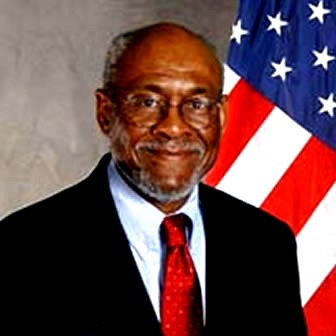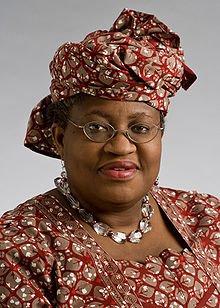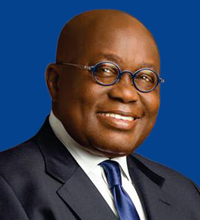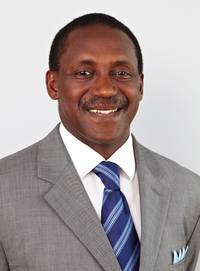 By Eric Acha
By Eric Acha
The tides could be turning on the Cameroon leadership following a senate hearing that took place on April 18 2012 at the US Senate/Subcommittee on Africa that was dominated with discussions on the Biya one-man-leadership that has been in power for over three decades. The Tsunami on Biya and Cameroon was unleashed in opening remarks by the US Assistant Secretary of State for African Affairs at the US State Department; Johnie Carson’s in which he revealed that following the conclusions of the 2011 presidential elections in Cameroon, he wrote to president Biya, urging the reestablishment, as soon as possible the term limit and the implementation of constitutional reforms and a more transparent and an independent electoral commission.
In his remarks to the committee that narrowed and focused on Cameroon, Hon Johnie Carson accused the Cameroon political leaders of the ruling party to have taken advantage of the country’s relative stability, prosperity and system of patronage to entrench their leadership. He added that the little oil that Cameroon has got has helped to provide a cushion to Paul Biya and encourage a patronage system as well as fuelled corruption in the country. In his words:
“Oil has been behind some of the corruption and patronage that has helped to keep Paul Biya in power”
In what seem to be the first and most damning declaration from a senior US official regarding the 2011 presidential elections in Cameroon, Hon. Carson unflinchingly declared before the committee that the 2011 presidential elections in Cameroon were seriously flawed; polling stations opened late, citizens were allowed to vote multiple times in some cases, ballot box stuffing and voters intimidations were observed in various parts of the country.
He lamented the fact that the Supreme Court received credible complaints of fraud from opposition parties, but unfortunately the court unjustly dismissed all the cases. This testimony and open declaration by Hon Johny Carson of the US State department goes far to explain why the US has until this day, not sent any form of congratulatory message to president Biya following the October 2011 presidential elections.
On comparing the US policy response between Cameroon and Senegal where both Wade and Biya had “tinkered” their constitutions by removing term limits, Carson explained that the US acted differently in Cameroon because the threat of violence and wide spread instability was not as great or as serious as it appeared to be in Senegal on the eve of the presidential elections. This is clear confirmation of the role the people’s power played in stopping Wade from another term in office. In contrast to the passive civil society in Cameroon, the Senegalese active civil society played a key role in organizing the grassroots support that quickly turned into an anti Wade movement.
In his closing remarks, Hon Johnie Carson remained optimistic about the future of Cameroon. He reiterated the popular believe that a democratic change is invertible in Cameroon, especially with President Biya getting close to 80 years old, implying that if the change doesn’t come from Cameroonians themselves, time will catch up with him eventually.
He called upon and persuaded the Senate/subcommittee on Africa to write to President Paul Biya in the same way the senates wrote to President Wade of Senegal, calling on him to respect the democratic norms so as to enable a smooth and peaceful transition of power in Cameroon. He also called on the Senate to remind Biya that the international community is focused on what is happening in Cameroon and the need to put stronger institutions which will ensure a stable transition when it comes.
On the second panel of the hearing, Dr. Christopher Fomunyoh, Senior Director for Africa at the national Democratic Institute (NDI) reminded and brought to the attention of the committee that for the past 50 years, Cameroon has failed to conduct national elections that were not overshadowed by controversy. Fomunyoh stressed that in Cameroon, the opaque handling of electoral processes and government-imposed hurdles impede the ability of civil society and independent media to monitor and report on elections.
He decried the fact that, the Cameroonian youth, prompted by restrictive laws and a lack of confidence in the country’s political system and institutions, are becoming apathetic and apprehensive of their future
Dr Fomunyoh who is widely expected to play a key role in the transition process in Cameroon raised legitimate concerns to the committee on the fact that, the lack of political will to create the appropriate framework for credible democratic elections in Cameroon, while preserving an entrenched regime in power, may push the country to the brink of violence and instability.
He equally called on the need to strengthen and embolden the Cameroonian civil society, giving their importance to the democratization process in Cameroon
Other panelists to the hearing included Dr. Mo Ibrahim of the Mo Ibrahim Foundation and Hon Earl Gast Assistant Administrator for Africa, U.S. Agency for International Development. Amongst the senior senators and committee members present for the hearing were Dem. Senator John Kerry and Senator Isakson.
For the complete testimoy from all 4 speakers, visit the APF repository on this link:
http://www.africanpolicyforum.org/index.php?option=com_jdownloads&Itemid=41&view=viewcategory&catid=11



